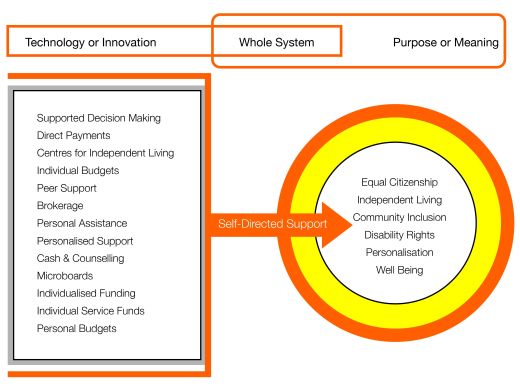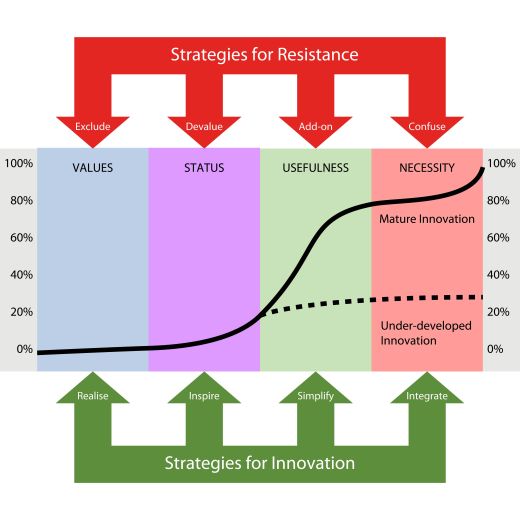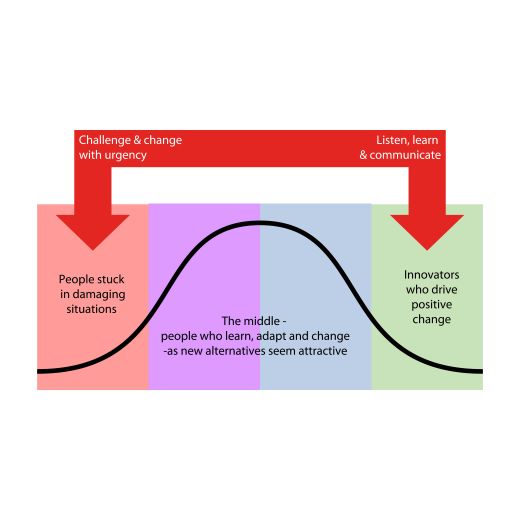Simon Duffy describes some of the strategies that can be used to shift systems towards the use of self-directed support.
Author: Simon Duffy
Self-Directed Support is an important social innovation that enables people to take control of any assistance they receive and to ensure that it is consistent with their goals and lifestyle. Self-Directed Support is critical to enable Independent Living for disabled people and for the fulfilment of our human rights. Self-Directed Support helps us all play our proper role as full citizens. It is also associated with improved health and well-being.
However most systems of support for people with disabilities or chronic illness do not offer people flexibility or control. For at least 50 years people, families and their allies have been lobbying, organising and innovating to create systems that better respect human rights.
This short guide provides an overview of what has been learned about lobbying for change. It also directs you to additional resources that you may find useful.
Self-Directed Support is assistance that the person who receives assistance can shape and control.
Often society gives help in ways that limit or control people. For example, we may only give people assistance if they leave their own home and start to live in an institution, or we may offer assistance in a day centre or sheltered workshop, rather than helping people to find work or do other things they value.
This is not acceptable.
We need to move our systems of support over to a system of Self-Directed Support where everyone, no matter the level of the complexity of their disability, can be in control of their own life. We have provided much more information on how Self-Directed Support works in practice on our online learning platform at www.selfdirectedsupport.eu
Even in one language - English - there are many different words which are used to describe Self-Directed Support or some part of Self-Directed Support.

This complexity reflects the fact that different countries have different systems and that as Self-Directed Support has evolved it often stresses different kinds of changes.
We use the term Self-Directed Support to describe the whole system change necessary so that support systems for people with disabilities or chronic illness are able to achieve independent living and full citizenship.
If you are interested in making progress in your community, region or country you may find that you don't need to use the words Self-Directed Support. Maybe there are other words that are already being used to describe Self-Directed Support or some part of Self-Directed Support. Use the words that make the most sense in your situation, that may be:
We use Self-Directed Support because it seems the best term to describe the whole system change we need to advance Independent Living and citizenship for all.
Generally people lobby for Self-Directed Support because they already believe it is the right thing to do. It is important to keep returning to the basic human rights arguments which support Self-Directed Support.
However it is also important to remember that many other people will not be easily persuaded by these arguments. People do not find change easy. Many people will resist change and they will resist change for different reasons. It is important to recognise that these reasons will always seem valid to the person who holds them, even if you do not think they are acceptable.
Change aways means challenge and often it leads to conflict. But ultimately we need everyone to share in a journey to a new direction. So it is important to treat everyone as a potential ally and to explore why they are resisting the change towards Self-Directed Support.
Different people respond to different arguments and you will need to organise your arguments and evidence around these different needs:
A. Do the right thing - Some people just want to do the right thing. They recognise that people have a right to control their own lives and they want to ensure that this right is respected. But appealing to high moral principles or to human rights may not be enough. You may need to find the right language and stories to make it clear why freedom is important and why people know best what is right for them.
B. Be part of a growing movement - Some may see Self-Directed Support as an exciting new idea and they may not want to be left behind. These people may focus on who is promoting the idea; they will want to see that it is being accepted by professional groups, official bodies or organisations that they value. It is important to make it easy for people to get involved, to share knowledge freely and to recognise when people are beginning to do a good job. It will be important to work with official bodies and important organisation to encourage them to adopt appropriate standards.
C. Achieve other important ends - Some people will only value Self-Directed Support if they think it will lead to other improvements or will increase efficiency. They will tend to resist Self-Directed Support if they see it as competing with existing systems that they think work well. They may try to limit the impact of Self-Directed Support to smaller areas. It will be important to explore how those systems can be reformed, how Self-Directed Support can be made available to growing numbers and how systems can be developed to make things simpler and easier to manage.
D. Obey the Law - Some may only respond if there are legal changes that make Self-Directed Support absolutely necessary. Legal change is the most obvious target for the lobbyist; but in practice change often needs to start at much more local level. This is why you need to look at what flexibility there might be in existing rules in order to ensure that some change can begin even when the laws are imperfect.
Lobbying often has to follow the flow of the innovation curve and you may need to focus your energy differently over time.

This curve also reflects that meaningful change requires work and development. Even if a helpful legal change is introduced it will only enable meaningful change - it will not make things happen on its own.
Introducing Self-Directed Support is a complex and dynamic social change and many different people need to be involved.
There can be many different levels for action:
At the beginning of any change there are likely to be two areas where positive change is most likely:
Often too much energy is focused on trying to 'manage the middle' - but this energy is often wasted. Focus on the margins to have the greatest impact

Ultimately you are going to have focus on your own strengths and the opportunities open before you. There is no guaranteed recipe for success. There will be important lessons still to learn, but here are some ideas to help you get started.
Self-Directed Support has been developing for over 50 years. Progress has been slow, but it has been real. Data, stories and evidence exists which can help you understand what works and why.
For example the Centre for Welfare Reform hosts a large library of resources on Self-Directed Support.
Most importantly get connected to people who have already been involved. For instance, you can join the global community of Citizen Network and connect with people nationally and internationally who are working to advance Self-Directed Support:
Self-Directed Support is challenging. It requires a fundamental shift in approach by society, organisations and government. These changes cannot happen just by changing the opinion of one civil servant or politician. It is more important to build a wider movement for change and to build bridges between different groups who may share similar goals.
Ultimately bring about meaningful change, change which has integrity and which is sustained over time, depends on building a wider understanding of why people need freedom and the ability to direct their support.
Many people will resist change, but often this is because of fear or uncertainty. Look for allies at every level. It is often people inside organisations or government who will open a door to change. Initial resistance may be followed by acceptance and understanding.
For example, many service providers may resists Self-Directed Support at first. But don’t treat service providers as the enemy, look out for those service providers who want to change or who are already pioneering good work. Celebrate their achievements and support them to win other allies.
For example, this guide explains how service providers can adapt to a world of self-directed support.
Share information and create branding and accessible information that helps people see Self-Directed Support as a human, ethical and entirely feasible change.
There is plenty of important empirical evidence supporting the positive impact of Self-Directed Support. Scientific evidence and data are important, but people's minds and emotions are often touched more by human stories.
People need to hear about the positive difference that Self-Directed Support. Ideally people should tell their own stories and film is an important medium to help connect people.
Self-Directed Support is an innovation. But it is an innovation that needs to evolve as society and systems evolve.
Don't get too fixed one kind of solution; welcome new ideas and new experiences and champion those who create solutions to existing problems. It is the bigger picture that matters - Independent Living and Citizenship for all.
Often movements for social change, especially as they start to become successful, become narrowly focused on one approach. Instead be open-minded and empirical. Find out what's really working and support that.
Some people need to see Self-Directed Support as part of a bigger picture:
Work with these groups to develop positive solutions to ensure that Self-Directed Support also helps advance other important objectives. Look at things from different points of view and create solutions that work for the wider community.
As the system starts to accept the need for change it is important that it is people and families who are helping define how the new system should work. It is very easy for the system to create issues, problems or processes that are irrelevant to what really helps. There is even a tendency for over-complexity to emerge as a response to Self-Directed Support.
Lobbying should increasingly become a matter of helping the system be accountable to people. For instance, it may also be useful to find ways of showing who is doing and good job (and therefore who is not). For example, this Citizen Network Map, on the Use of Individual Service Funds in England, is designed to help local people challenge a failure of practice in England.
Change takes time, but does it take more money?
Often when government starts to support Self-Directed Support there is a grave danger that lots of money will be wasted on new jobs, management consultants, fancy projects - but actually none of this leads to meaningful change. Meaningful change will usually mean stopping doing the wrong things and starting to do the right things. In itself this should not cost money - it is about using money differently.
If you have other ideas on how to lobby for Self-Directed Suppor then please get in touch with Simon Duffy directly.

The publisher is the Centre for Welfare Reform.
Lobbying for Self-Directed Support © Simon Duffy 2019.
All Rights Reserved. No part of this paper may be reproduced in any form without permission from the publisher except for the quotation of brief passages in reviews.
Self-Directed Support, social care, Global, Article